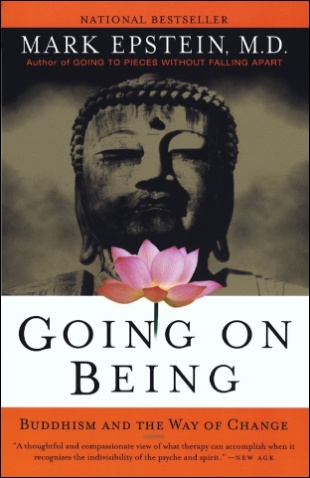Mark Epstein, M.D. is a psychiatrist and consulting editor to Tricycle: The Buddhist Review and author of Going to Pieces Without Falling Apart. In this engaging work that is part memoir and part an exploration of the confluence of Buddhism and psychology, the author affirms the salutary powers of meditation as a tool for transformation and personal renewal.
Traditional therapy has focused on patients dealing with their problems, and this can lead to the following dilemmas: "When people believe that they are their problems, there is often a desire to pick away at the self, as if by doing so they could expose how bad they really are. People think that if they could just admit the awful truth about themselves, they would start to feel better, almost as if they have to go to confession to be absolved of their sins."
An alternative to this obsession with one's flaws is to cultivate self-awareness. Epstein reveals how teachers such as Ram Dass, Joseph Goldstein, and Jack Kornfield helped him see that "awareness can grow if you cut through your habitual responses to things." The goal is to achieve a state where one does not push away the unpleasant or seek to cling to the pleasant. Epstein calls this middle way "going on being."
Other topics covered in the book are the easing of identity, the platform of joy, dealing with the emotions, bringing balance to relationships, and coping with death. At one point, Epstein notes: "The original Pali word for a Buddhist monk or renunciant, bhikkhu, means 'fear seer,' one who can tolerate his own terror." We will all better be able to confront our emotions once we accept them as part of the ongoing "melodrama" (as Ram Dass puts it) of our lives.
